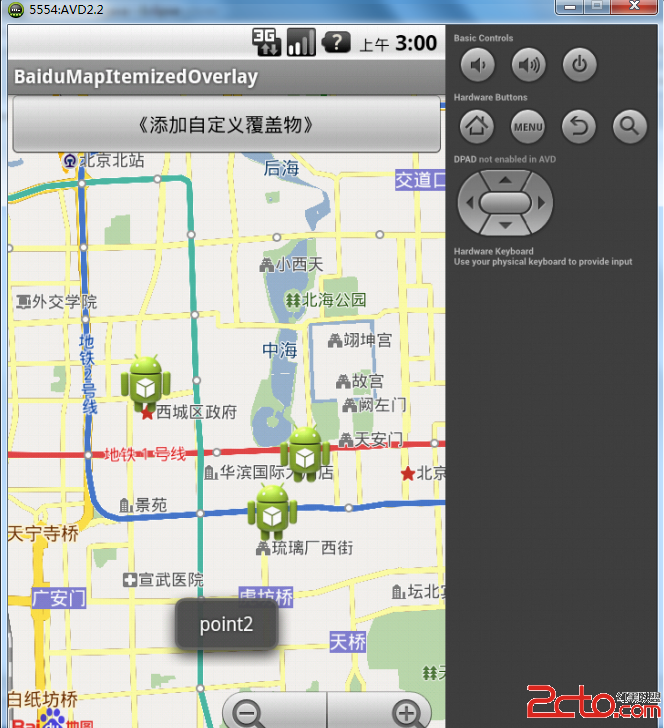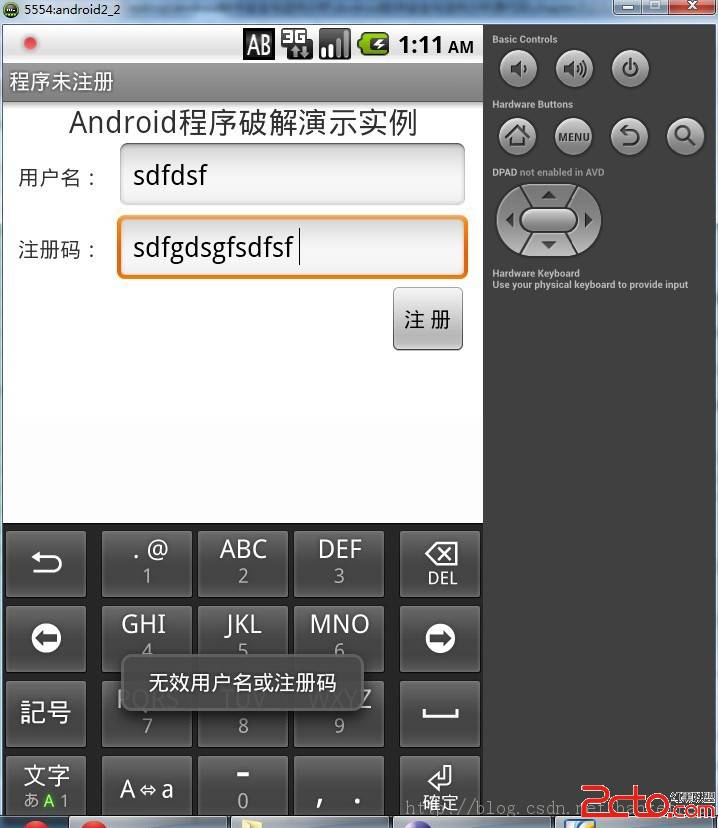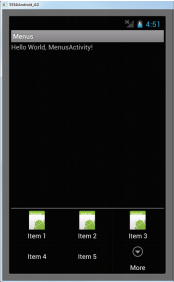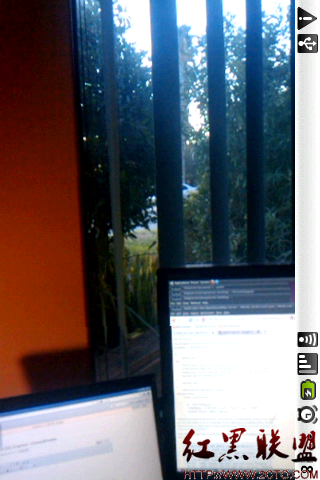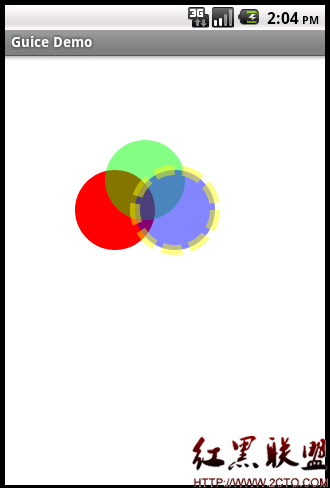在此基础之上,我们对工程文件做一定的修改。
第一步,修改布局文件,添加button控件,用于控制添加自定义覆盖物。代码如下:
[html]
<RelativeLayout xmlns:android="http://schemas.android.com/apk/res/android"
xmlns:tools="http://schemas.android.com/tools"
android:layout_width="match_parent"
android:layout_height="match_parent"
tools:context=".MainActivity" >
<!-- 放入百度地图的mapview -->
<com.baidu.mapapi.map.MapView android:id="@+id/bmapsView"
android:layout_width="fill_parent"
android:layout_height="fill_parent"
android:clickable="true"/>
<!-- 添加按钮 -->
<Button
android:id="@+id/button1"
android:layout_width="fill_parent"
android:layout_height="wrap_content"
android:layout_alignParentLeft="true"
android:layout_alignParentRight="true"
android:layout_alignParentTop="true"
android:text="《添加自定义覆盖物》" />
</RelativeLayout>
第二步,定义继承自ItemizedOverlay<OverlayItem>的自定义图层。代码如下:
[java]
public class MyOverLay extends ItemizedOverlay<OverlayItem> {
private List<OverlayItem> GeoList = new ArrayList<OverlayItem>();
private Context mContext;
private double mLat1 = 39.90923;//39.9022; // point1纬度
private double mLon1 = 116.397428;//116.3822; // point1经度
private double mLat2 = 39.9022;
private double mLon2 = 116.3922;
private double mLat3 = 39.917723;
private double mLon3 = 116.3722;
public MyOverLay(Drawable marker, Context context){
super(marker);
this.mContext= context;
// 用给定的经纬度构造GeoPoint,单位是微度 (度 * 1E6)
GeoPoint p1 = new GeoPoint((int)(mLat1 * 1E6), (int)(mLon1 * 1E6));
GeoPoint p2 = new GeoPoint((int)(mLat2 * 1E6), (int)(mLon2 * 1E6));
GeoPoint p3 = new GeoPoint((int)(mLat3 * 1E6), (int)(mLon3 * 1E6));
GeoList.add(new OverlayItem(p1, "P1", "point1"));
GeoList.add(new OverlayItem(p2, "P2", "point2"));
GeoList.add(new OverlayItem(p3, "P3", "point3"));
populate();//createItem(int)方法构造item。一旦有了数据,在调用其它方法前,首先调用这个方法
}
@Override
protected OverlayItem createItem(int i){
return GeoList.get(i);
}
@Override
public int size(){
return GeoList.size();
}
@Override
// 处理当点击事件
protected boolean onTap(int i){
Toast.makeText(this.mContext, GeoList.get(i).getSnippet(), Toast.LENGTH_SHORT).show();
return true;
}
}
第三步,在主类中定义并初始化button控件,设置相应的点击事件。代码如下:
[java]
// 初始化button并设置点击操作事件
button = (Button) findViewById(R.id.button1);
button.setOnClickListener(new OnClickListener() {
@Override
public void onClick(View v) {
// TODO Auto-generated method stub
Drawable marker =getResources().getDrawable(R.drawable.ic_launcher);
mapView.getOverlays().add(new MyOverLay(marker, MainActivity.this));
mapView.refresh();
}
});
第四步,运行,显示结果如下:
